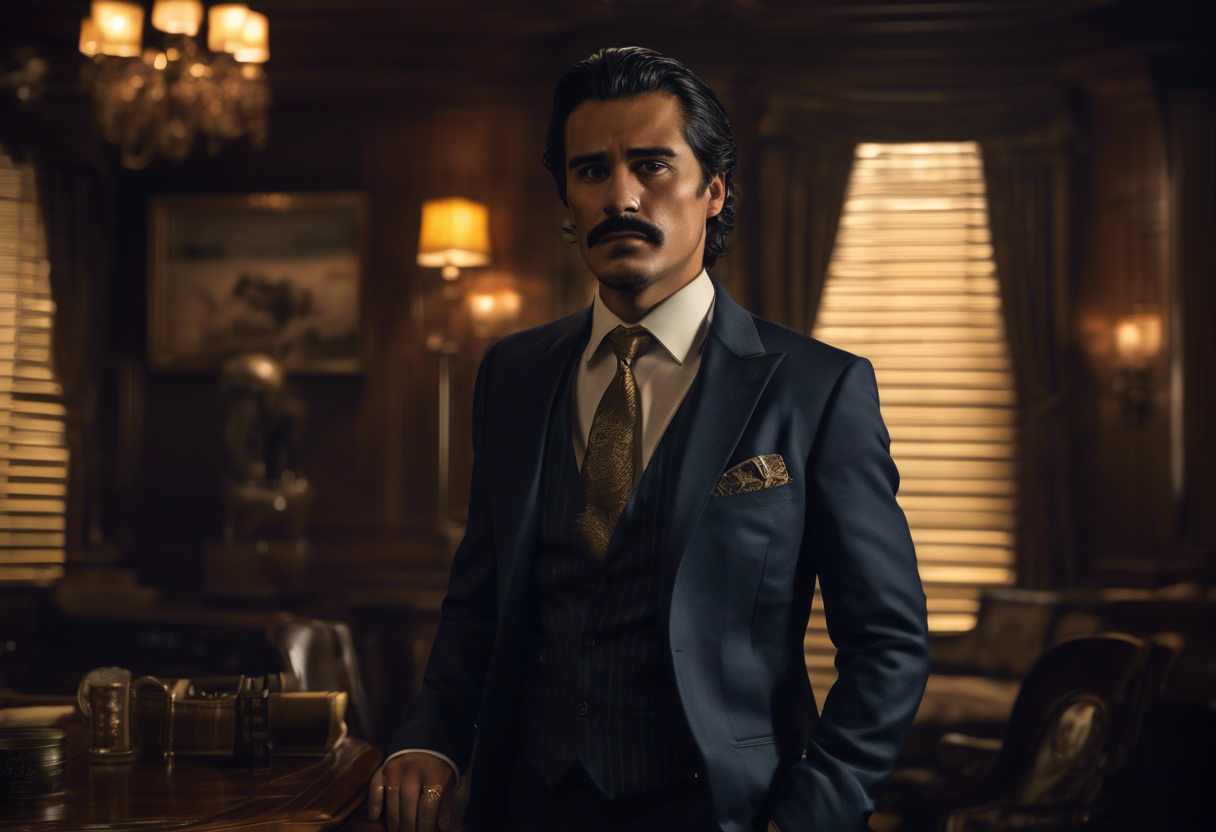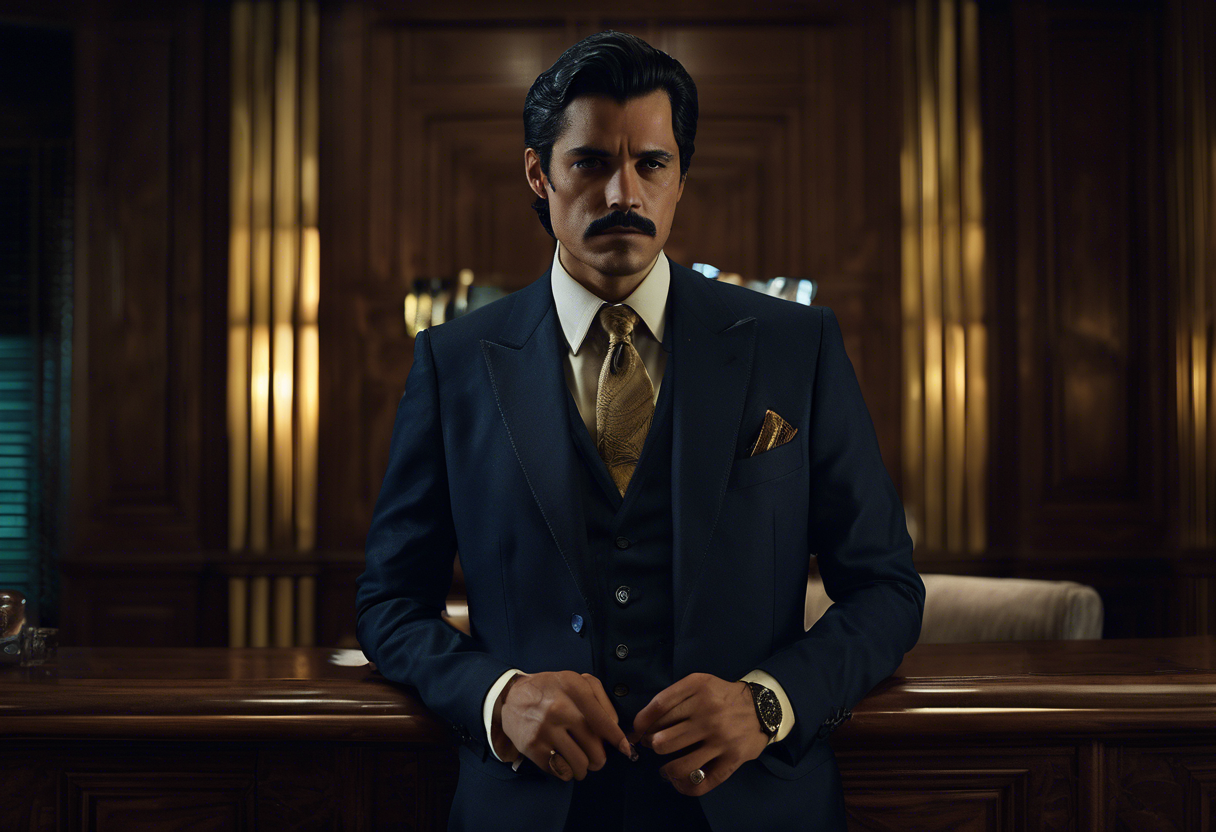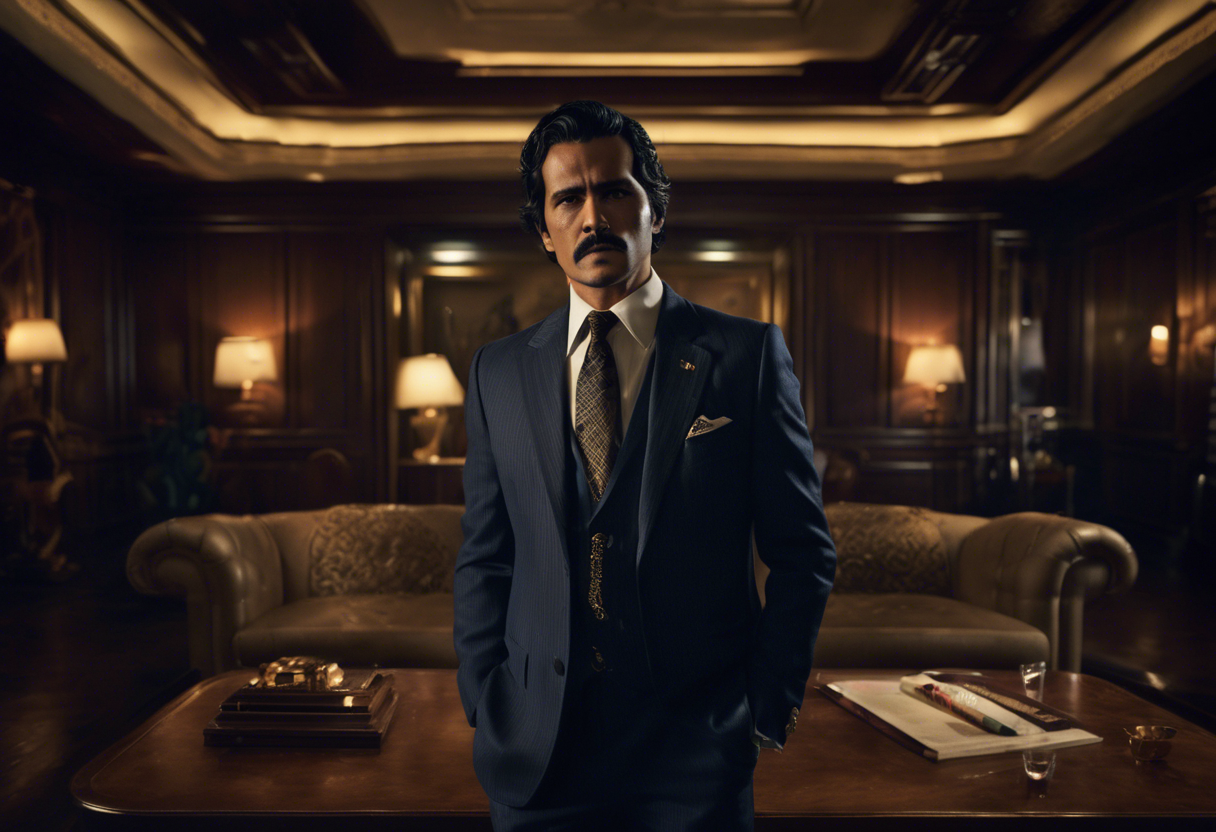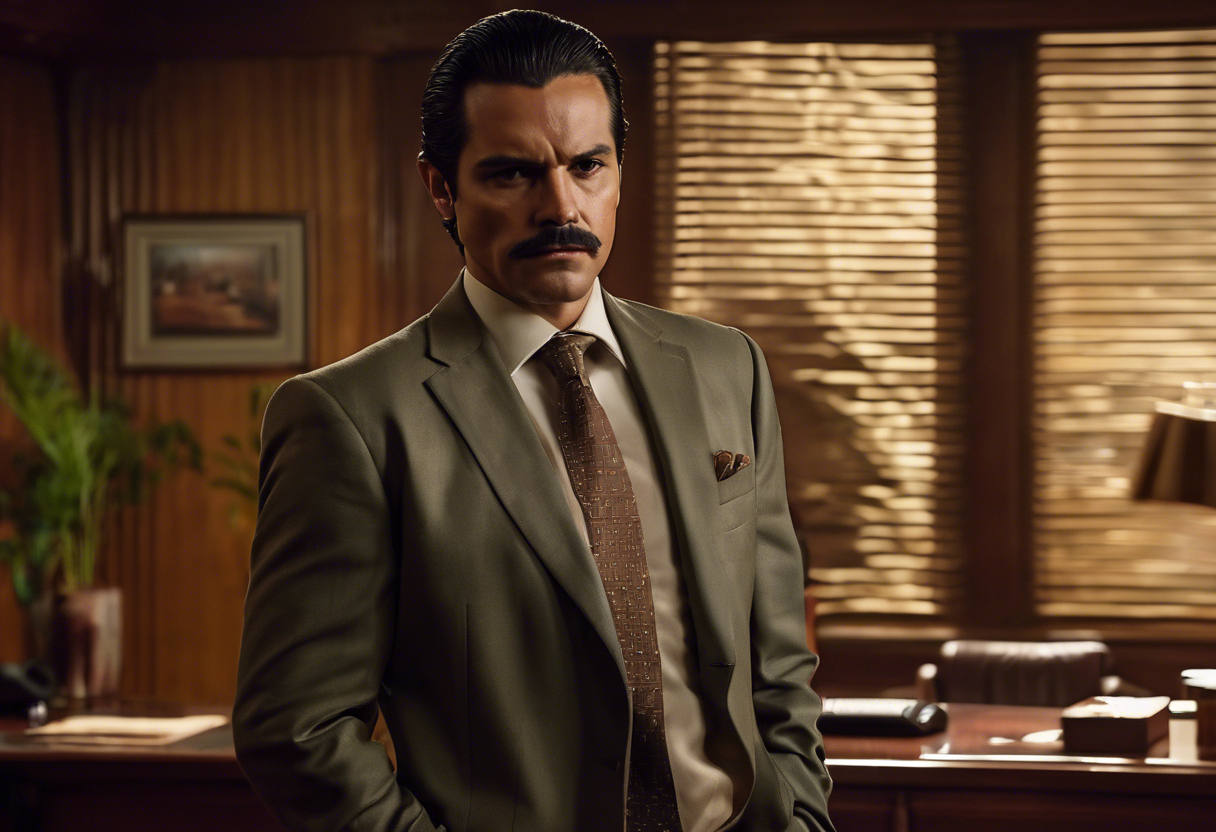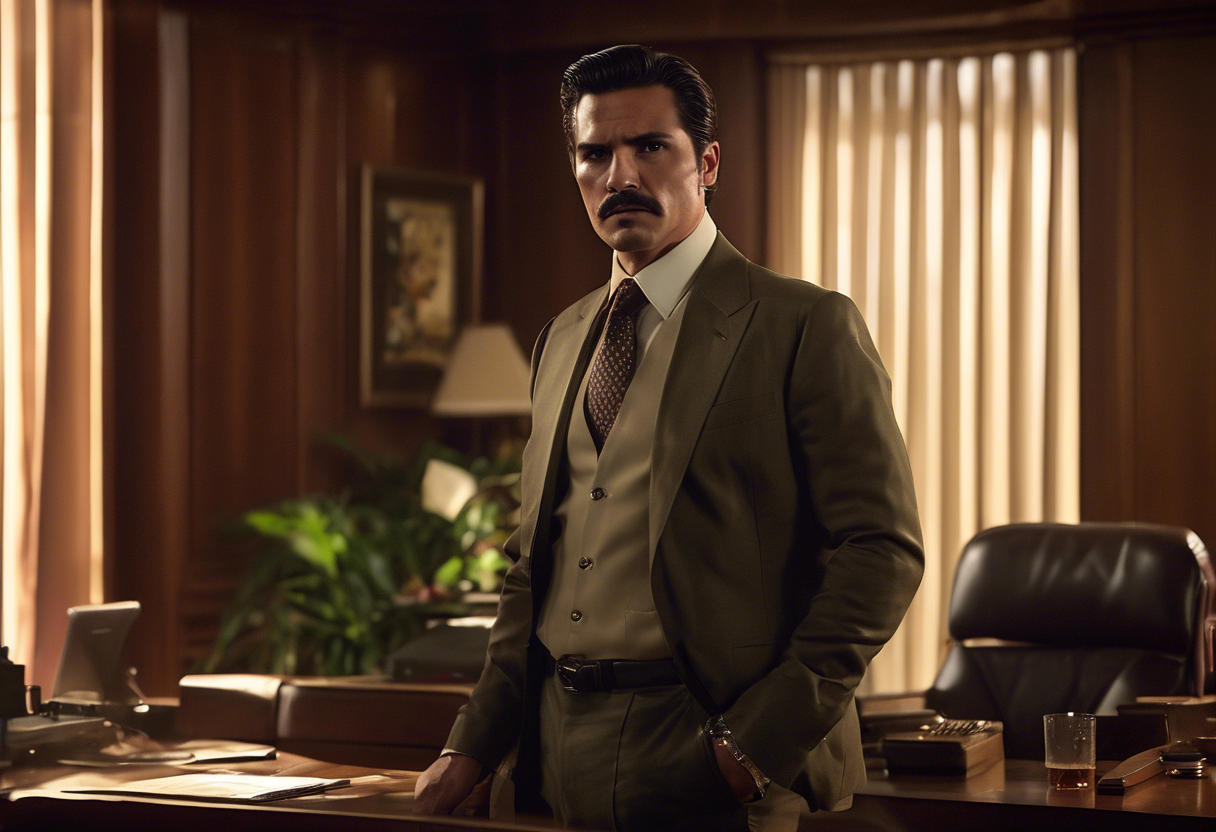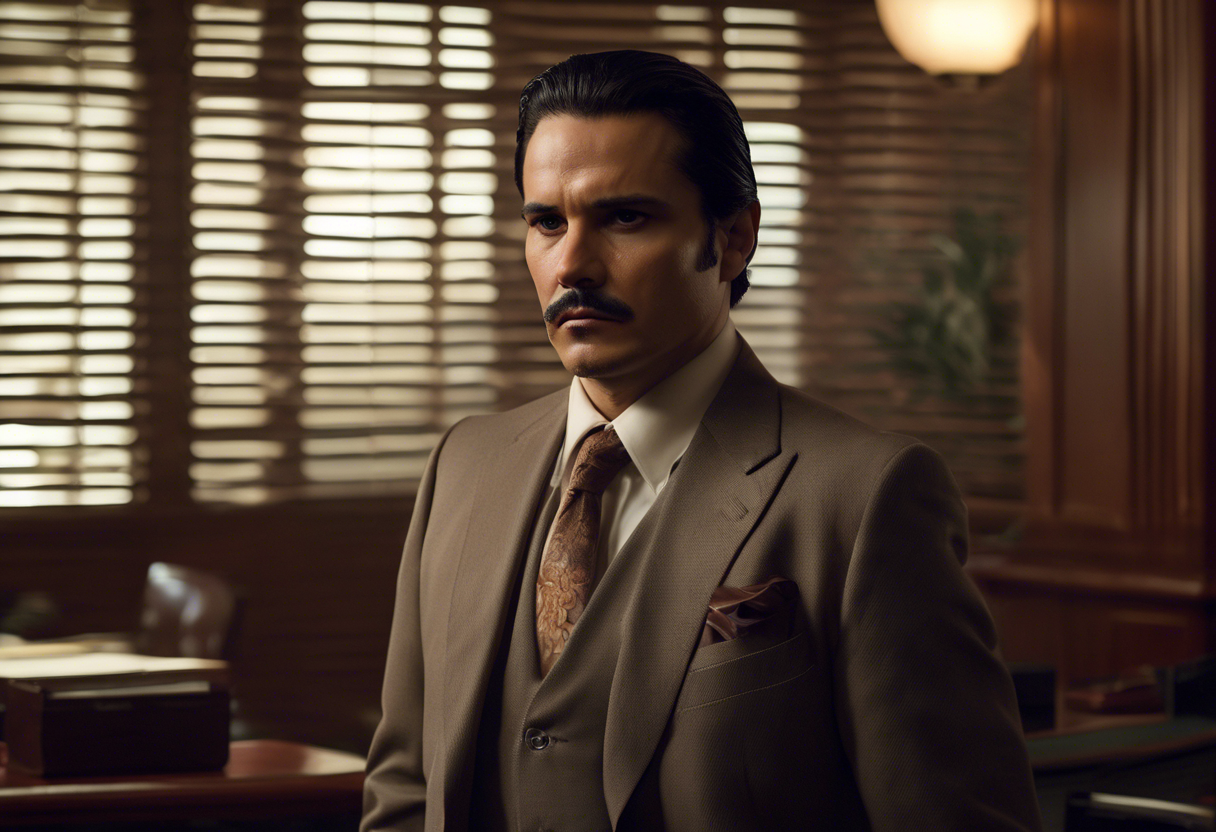Contents
Miguel Rodríguez Orejuela: The Cali Cartel Leader in the Lens of "Narcos"
Introduction
Miguel Ángel Rodríguez Orejuela, born on August 15, 1943, in Mariquita, Colombia, is a pivotal figure in the narrative of the Netflix series "Narcos," although he is more prominently associated with the Cali Cartel rather than being a central character in the show. As one of the leaders of the Cali Cartel, alongside his brother Gilberto Rodríguez Orejuela, Miguel played a crucial role in the Colombian drug trade during the late 20th century. His story, while not the main focus of "Narcos," which primarily chronicles the rise and fall of Pablo Escobar and the Medellín Cartel, is intertwined with the broader landscape of drug trafficking in Colombia.
Miguel Rodríguez Orejuela’s significance extends beyond his role in the series; he represents a segment of the drug trade that was more sophisticated and less flamboyant than Escobar’s operations. Known as "El Señor" (The Lord), he embodied a more calculated and business-oriented approach to drug trafficking, which distinguished the Cali Cartel from its Medellín counterpart[2][3].
Role in the Series
Although Miguel Rodríguez Orejuela is not a main character in "Narcos," his presence and the operations of the Cali Cartel are occasionally referenced, particularly in the context of the broader drug war and the DEA’s efforts to dismantle both the Medellín and Cali cartels. The series primarily focuses on Pablo Escobar and the Medellín Cartel, but it hints at the rivalry and the different operational styles between the two cartels.
Miguel’s journey, as inferred from historical records, involves his rise to power within the Cali Cartel, his strategic leadership, and his eventual downfall. He and his brother Gilberto built the Cali Cartel into a formidable force, known for its efficiency and low profile. Unlike Escobar, who was more visible and violent, the Rodríguez Orejuela brothers operated with a more subtle and calculating approach, often using bribery and corruption to maintain their power[2][3].
The key events involving Miguel Rodríguez Orejuela include his involvement in the cocaine trade, money laundering, and the eventual crackdown by law enforcement. His conviction in the United States for conspiracy to import cocaine and money laundering led to a significant sentence of 30 years for the cocaine conspiracy and 7.25 years for money laundering, with the sentences running concurrently. Additionally, he was ordered to forfeit $2.1 billion in assets[2].
Character Analysis
Miguel Rodríguez Orejuela’s personality is characterized by his strategic thinking and business acumen. Unlike the more impulsive and violent Pablo Escobar, Miguel was known for his calm and calculated approach to the drug trade. This approach made him a formidable leader within the Cali Cartel and allowed the organization to thrive for many years.
His motivations were largely driven by the desire for power and wealth. The Cali Cartel’s operations were highly organized, with a strong emphasis on financial management and corruption to maintain their influence. Miguel’s strengths included his ability to manage the cartel’s finances and operations efficiently, as well as his capacity to avoid direct conflict with law enforcement for a long period.
However, his flaws included his eventual underestimation of the DEA’s determination and the U.S. government’s resolve to dismantle the cartel. His downfall was also hastened by internal conflicts and the increasing pressure from law enforcement[2][3].
Themes and Symbolism
Miguel Rodríguez Orejuela embodies several themes that are central to the narrative of "Narcos" and the broader context of the drug war. One of the primary themes is the corrupting influence of power and wealth. The Cali Cartel’s rise and fall serve as a cautionary tale about the dangers of unchecked power and the consequences of engaging in illegal activities.
Another theme is the sophistication and adaptability of drug cartels. Unlike the more brutal and visible operations of the Medellín Cartel, the Cali Cartel’s approach symbolizes the evolution of drug trafficking into a more complex and organized crime. This theme highlights the challenges law enforcement faces in combating such sophisticated criminal organizations[2][3].
Cultural Impact
Miguel Rodríguez Orejuela’s cultural impact is significant, though it is often overshadowed by the more dramatic and visible figure of Pablo Escobar. However, his legacy as a leader of the Cali Cartel has influenced how drug cartels are portrayed in media. The portrayal of the Cali Cartel in various adaptations and documentaries often contrasts with the more sensationalized depiction of the Medellín Cartel, highlighting the different strategies and cultures within the drug trade.
The controversy surrounding the portrayal of his son, William Rodríguez Abadía, in the Netflix series "Narcos" also underscores the complex and often contentious nature of depicting real-life figures in media. William Rodríguez Abadía criticized the series for portraying him as a hitman and glorifying drug trafficking, which he argued was inaccurate and damaging to his reputation[5].
Critical Reception
The critical reception of Miguel Rodríguez Orejuela’s character is largely indirect, given that he is not a central figure in "Narcos." However, the portrayal of the Cali Cartel and its leaders in various media has been subject to critique and analysis. Critics often praise the nuanced portrayal of drug cartels, highlighting the differences between the Medellín and Cali cartels as a strength in storytelling.
The controversy surrounding the accuracy of portrayals, as seen in the case of William Rodríguez Abadía, also reflects broader criticisms about the glamorization of drug trafficking in media. This debate underscores the challenges of depicting real-life figures and events in a way that is both engaging and respectful[5].
Legacy
Miguel Rodríguez Orejuela’s legacy is that of a calculating and strategic leader in the drug trade, whose approach to organized crime was distinct from the more violent and flamboyant figures like Pablo Escobar. His story serves as a reminder of the complexities and nuances of the drug war, highlighting the different strategies and cultures within drug cartels.
His influence can be seen in how subsequent media portrayals of drug cartels often include more sophisticated and business-oriented characters, reflecting the real-life operations of cartels like the Cali Cartel. This legacy also extends to the ongoing discussions about the drug war, corruption, and the challenges faced by law enforcement in combating organized crime[2][3].
References
- https://narcos.fandom.com/wiki/Miguel_Rodr%C3%ADguez_Orejuela
- https://en.wikipedia.org/wiki/Miguel_Rodr%C3%ADguez_Orejuela
- https://historica.fandom.com/wiki/Miguel_Rodriguez_Orejuela
- https://en.wikipedia.org/wiki/Narcos:_Mexico
- https://www.miamiherald.com/news/nation-world/world/americas/article181075081.html

